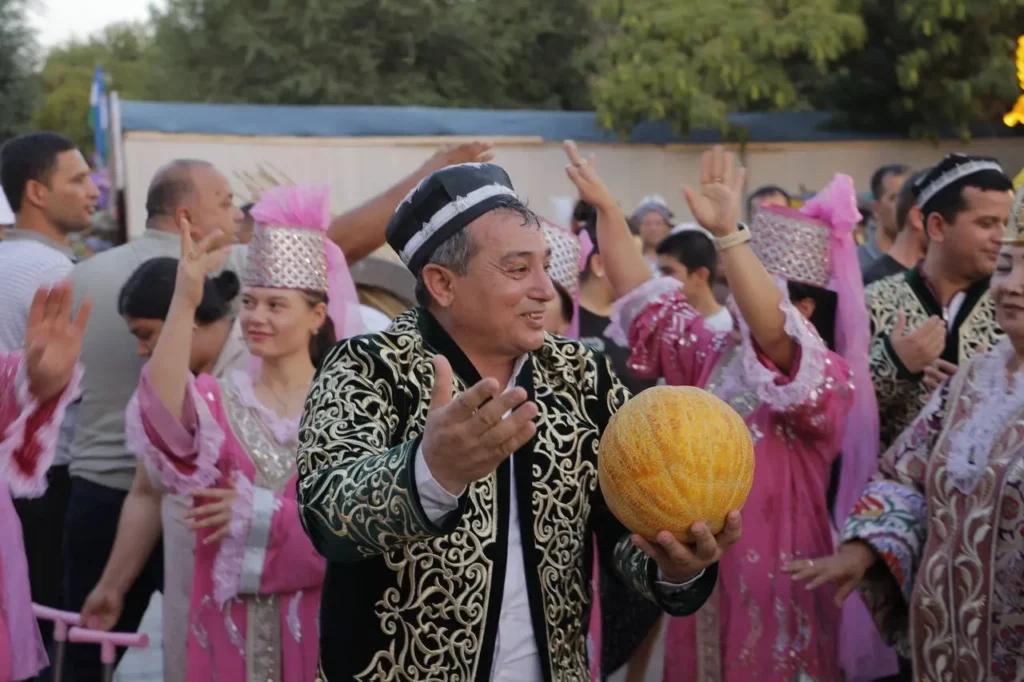
Bukhara — a land of ancient history, fertile soil and hardworking people — once again affirms its deep-rooted commitment to Uzbekistan’s agricultural traditions. To mark the 34th anniversary of the country’s independence, the 28th Qovun Sayli (Melon Festival) officially opened in the region.
The traditional event brought together experienced farmers from across Bukhara region, each proudly presenting their finest melon varieties and other locally grown produce. Their harvests, the fruits of dedication and care for the land, symbolise both resilience and affection for the soil.
The festival opened with a welcome speech from Bukhara region governor Botir Zaripov, followed by remarks from Uzbekistan’s Minister of Agriculture, Ibrohim Abdurakhmonov.
More Than Just a Fair
In his address, the minister highlighted that Qovun Sayli is far more than a simple agricultural exhibition — it is a true celebration of national reform and honest labour. Such events, he noted, provide tangible examples of the transformation in Uzbekistan’s farming sector and the growing support for both farmers and smallholders.
The festival featured the region’s best melon varieties, with farmers openly sharing their experience and practices. The event also inspired many young attendees, whose interest in agriculture and innovative farming technologies continues to grow.
A Festival of Scent and Song
The festive spirit was heightened by performances from folk ensembles and local artists. As the sweet scent of melon filled the air above Bukhara, a true atmosphere of celebration took hold.
Qovun Sayli stands as a tribute to those who devote themselves to the land — a sincere recognition of the farmers whose tireless work feeds the nation.
Kursiv also reports about Sanat Kalandarov is a farmer and scientist from Khorezm who has devoted his life to melons and even produced his own variety.













